Vocabulary expansion Normal Reading Fiction Worksheets for Ages 7-8
7 filtered results
-
From - To
Empower young readers with our Vocabulary Expansion Normal Reading Fiction Worksheets designed for ages 7-8. These engaging activities encourage kids to delve into captivating stories while enhancing their vocabulary skills. Each worksheet offers a blend of fun and educational tasks crafted to expand word knowledge, improve reading comprehension, and spark a lifelong love for reading. Perfect for classroom use or at-home learning, our resources support various learning styles and keep children motivated and eager to learn. Set the foundation for effective communication and robust reading proficiency with our expertly designed worksheets.


Rhymes in Poems Worksheet
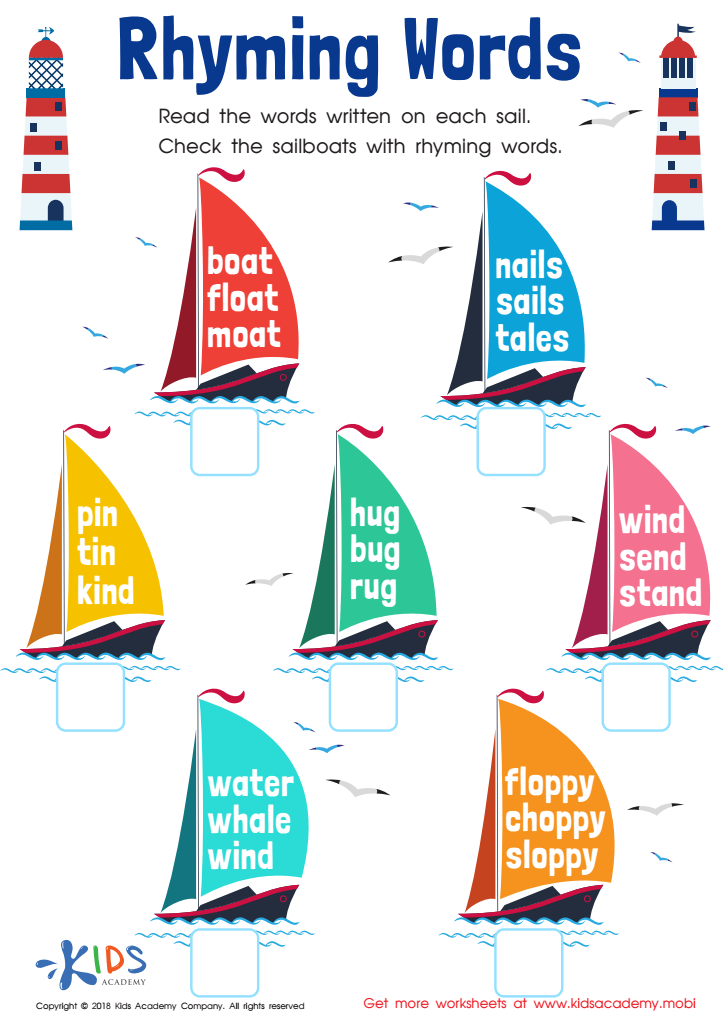

Rhyming Words Worksheet
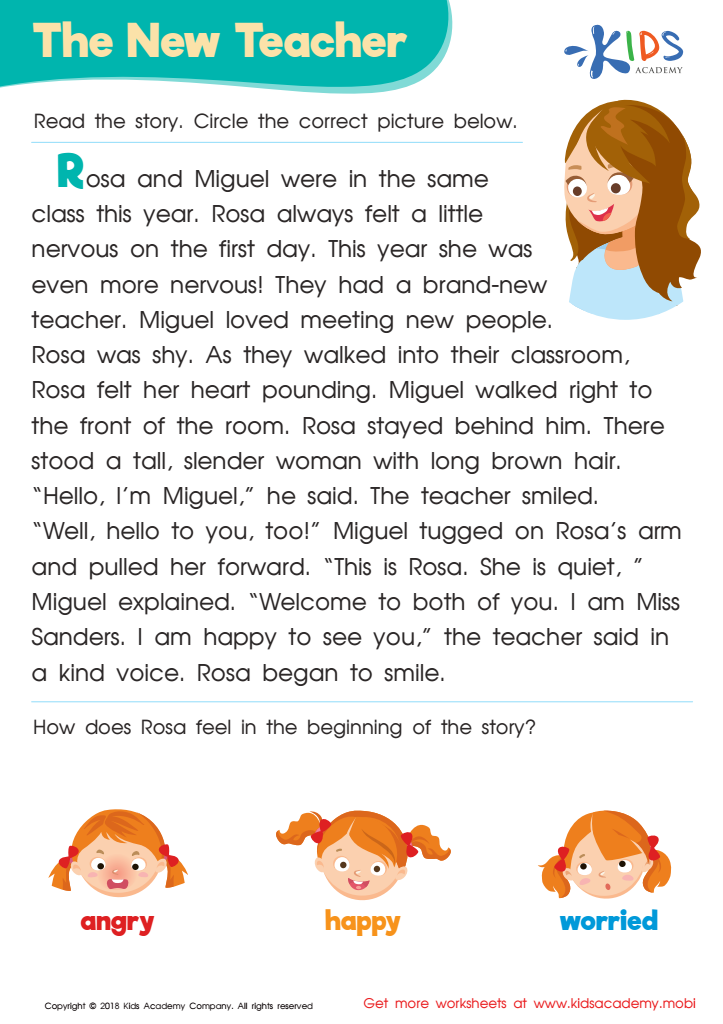

The New Teacher Worksheet
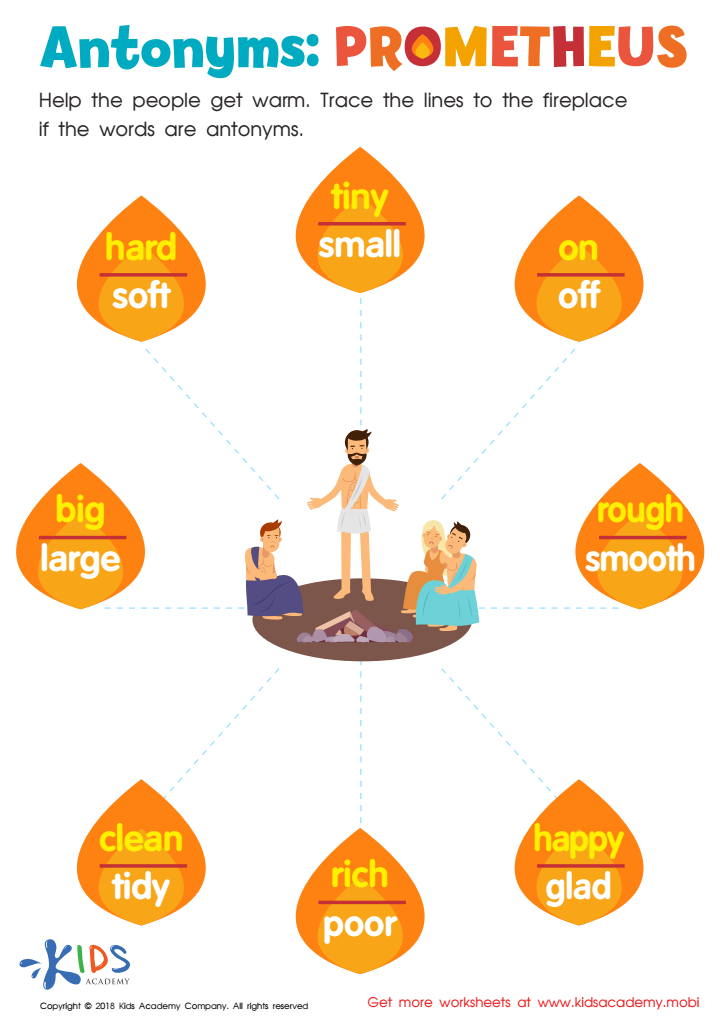

Antonyms: Prometheus Worksheet
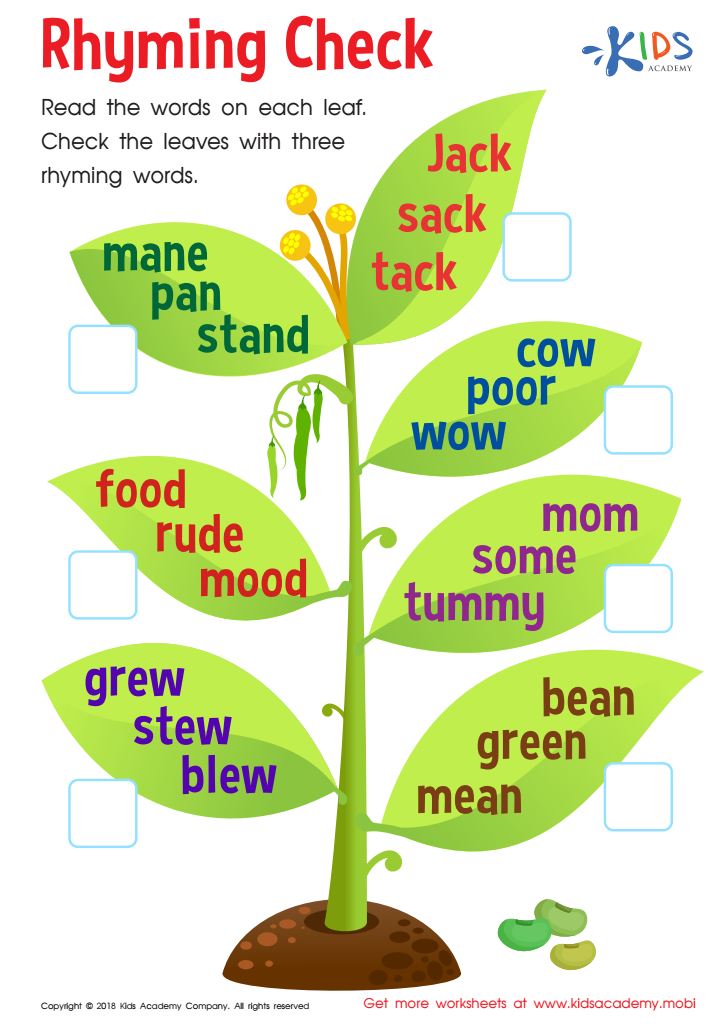

Rhyming Check Worksheet
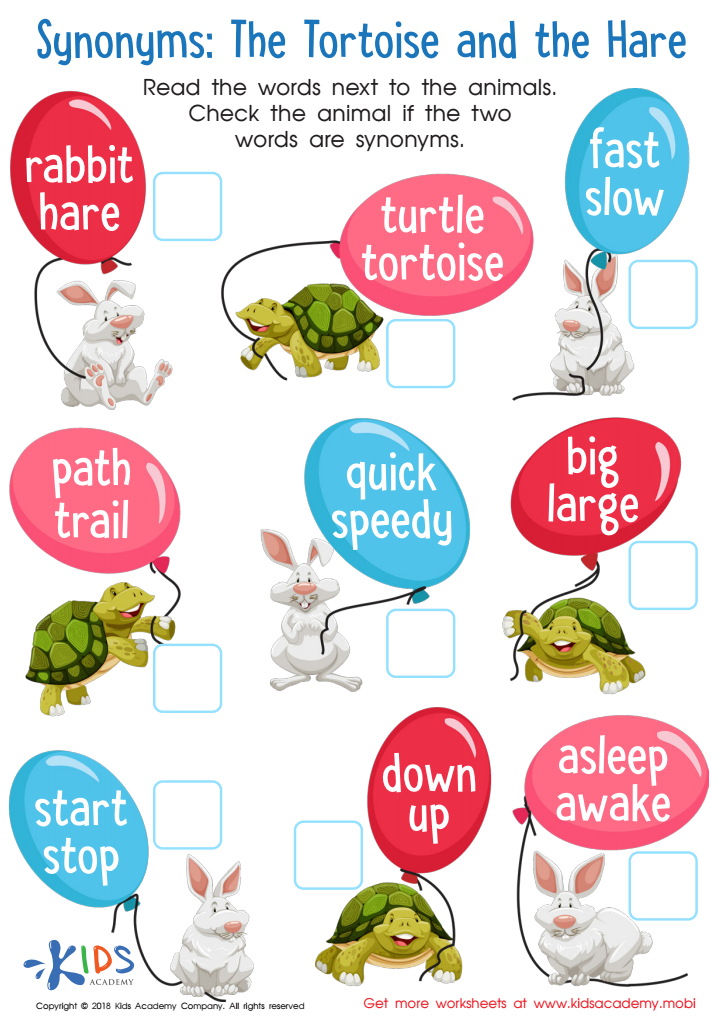

Synonyms: The Tortoise and Hare Worksheet
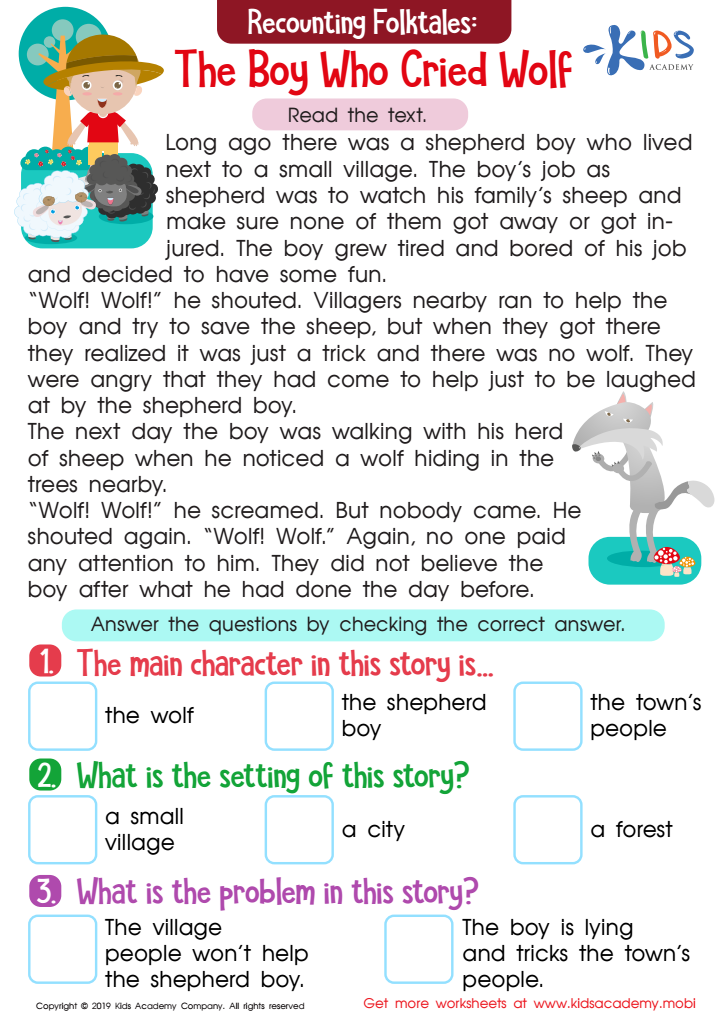

The Boy Who Cried Wolf Part 1 Worksheet
Vocabulary expansion through normal reading, especially of fiction, is critical for children aged 7-8, a crucial period for language development. At this age, children's linguistic skills are rapidly evolving. Broadening their vocabulary enhances their ability to express thoughts and emotions more clearly and accurately. Parents and teachers must appreciate that fiction immerses children in new and varied language settings, exposing them to words and phrases outside their daily experiences.
Engaging with richer texts enhances comprehension skills, enabling children to understand context and infer meanings, which supports overall academic success. Fiction, with its narratives and dialogues, relatable characters, and diverse scenarios, provides contextual clues that help children make educated guesses about new words' meanings—a key aspect of effective vocabulary acquisition.
Additionally, a robust vocabulary is linked directly to improved writing skills. When children read stories, they internalize sentence structures, figurative language, and descriptive expressions, offering tools they can draw from in their writing. Emotionally, they connect more deeply with stories, understanding broader human experiences and emotions, which fosters empathy and social understanding.
Ultimately, parents and teachers investing time and energy into promoting vocabulary expansion through fiction during these formative years lay the groundwork for strong language skills, critical thinking, and lifelong learning enthusiasm.

 Assign to My Students
Assign to My Students



















